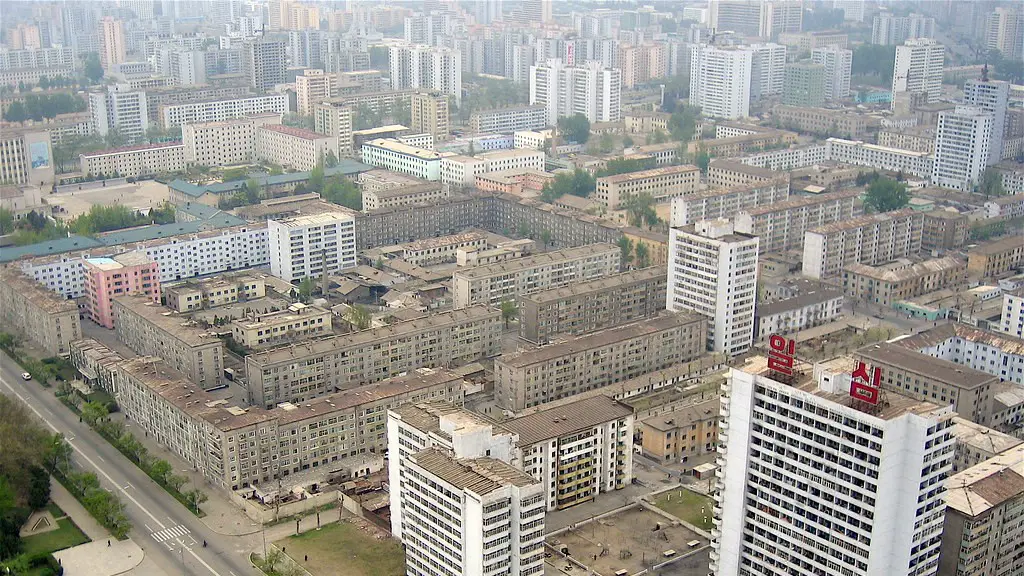When Korea was liberated from the Japanese in 1945, two separate occupation zones were formed. The Soviet Union controlled the northern section and the United States controlled the southern. However, due to the differences in philosophy and ideologies of the two superpowers, the ideologic differences caused them to go incompatible with each other over the decades, eventually leading to the creation of two nation states. On August 15, 1948, South Korea declared its own independence from North Korea.
The declaration of South Korea’s independence was followed by North Korea’s own declaration of independence on September 9, 1948, culminating in the Korean War. The Korean War lasted from 1950 to 1953 and these three years saw tragedy and terror for the people in both countries. During the war, nearly 2 million lives were lost and no peace treaty was ever signed.
After the Korean War, the South began to quickly develop economically and politically, to become the powerhouse it is today. While North Korea remained largely closed off from the rest of the world. This has caused a large divide between South Korea and North Korea, which has lasted to this day.
The South Korea of today is vastly different from the South Korea of the 1950s and 1960s. In the 1950s, South Korea was one of the poorest countries in the world, with an economy that was disastrously impacted by the Korean War. However, by 1997, the South Korean economy had become one of the fastest-growing in the world, and today South Korea is one of the leading countries in terms of economic output per capita in Asia.
In comparison, North Korea remains one of the least developed countries on earth. North Korea’s economy has been heavily reliant on foreign aid, trade relations with China, and occasional investments from South Korea. North Korea has remained isolated from the global economy and has been controlled by oppressive regimes since its independence in 1948.
Although the two countries are still divided to this day, there has been some movement toward reconciliation and cooperation between the South and the North. South Korean President Moon Jae-in has made it a priority to encourage unity and reunification between North and South Korea, and there have been a number of recent economic and political moves towards this goal. For example, in 2018, the two nations opened the inter-Korean hotline, a direct communication channel that had not existed before, and the two governments opened an industrial park in the Kaesong region, where factories and businesses owned by both countries can operate.
It remains to be seen if the current policies and initiatives will create any real progress towards reunification. In the meantime, South Korea and North Korea remain separate countries, with different policies, goals, and ideologies.
Positive and Negative Impacts of Separation
Separation of the two countries has had an immense effect on each region. In South Korea, there have been significant benefits from the break. South Korea has seen a drastic improvement in living standards thanks to economic development models that have been successful over the past few decades. This has resulted in a high level of economic and social security for the citizens of South Korea.
In North Korea, the cost of separation has been much greater. North Korea has remained closed off from the rest of the world, and its citizens have been denied access to many of the basics of life, including health care and education. The oppression of the North Korean government has caused a large amount of human suffering, and the sanctions and pressure that the nation has faced from the international community have significantly exacerbated this situation.
The effects of the separation can also be seen in other areas, such as the environment. The environment has been severely degraded, particularly in North Korea, due to lack of investment in ecological efforts. In South Korea, the effects of high industrial output and the rapid growth of consumerism over the last decades have put tremendous pressure on the environment. In the Korean Peninsula as a whole, air and water pollution remain a major challenge.
Underlying Causes of Separation
The causes of separation between North and South Korea are complex and intertwined. At the most basic level, they can be seen as the result of long-standing ideological differences between the two countries, as well as economic and political differences. Over the decades, these differences have resulted in two nations that have become increasingly divided and entrenched in their own worldviews.
In addition, external influences and geopolitical strategies have played a major role in the differences between the two countries. Most notably, the Cold War and the strategic interests of the United States and Russia have had a significant influence on both countries. This resulted in North Korea receiving significant military and economic support from Russia and China, while South Korea was closely tied to the United States.
Over time, these geopolitical dynamics have deepened the divide between the two countries and rendered it increasingly difficult for the two nations to come together. This has resulted in the current situation in which North and South Korea remain divided, and which political solutions have so far been elusive.
North-South Korea Relations
The relationship between North and South Korea has been incredibly complex over the years. At times, there have been moments of progress and hope, such as the aforementioned inter-Korean hotline and the Kaesong industrial park. However, these moves have been accompanied by continued tensions, such as the placement of increased military presence on both sides of the border and the continued testing of missiles and nuclear weapons by North Korea.
The last few years have seen an increase in communication between North and South Korea, with a few high-profile meetings between the leaders of the two countries. Kim Jong-un, the North Korean leader, and Moon Jae-in, the South Korean President, made history in 2018 when they met for the first time in the Korean Demilitarized Zone. The meeting was seen as a significant breakthrough for inter-Korean relations and both presidents declared a commitment to fostering cooperation.
More recently, North and South Korea agreed to open up a liaison office in the border town of Kaesong. The new office is expected to be used for regular communication and discussion between both countries, and to facilitate practical co-operation and implementation of agreements.
Reunification Prospects
For the foreseeable future, it is unlikely that the two countries will be reunified. While there have been some positive signs, such as the inter-Korean talks and economic initiatives, there are still many issues that need to be addressed before reunification efforts can begin in earnest.
North and South Korea remain completely different countries in almost every aspect, as a result of the decades of separation. This includes different ideologies, political systems, and even language. In addition, there remain deep divisions between the two nations, particularly between families and individuals who have not seen each other in many years.
These divisions make reunification a very difficult proposition, and for the time being, it seems unlikely that this process will be successful. That being said, there is some hope that the recent initiatives, such as the new inter-Korean liaison office, will be able to set the stage for a more fruitful dialogue and eventually, reunification.
Conclusion of Conflict
The conflict between North and South Korea has left a lasting impact on both countries. South Korea is now a prosperous and successful nation, while North Korea remains isolated and desperately poor. The two nations remain divided due to a variety of factors, and while there have been some signs of positivity, a lasting peace and reunification effort remains a distant prospect.
Although the conflict continues to remain unresolved, it is important to keep in mind that the people within both countries are still connected. Ultimately, the success of any peace or reunification efforts will depend on the willingness of the citizens of both countries to come together and work towards a common goal.





